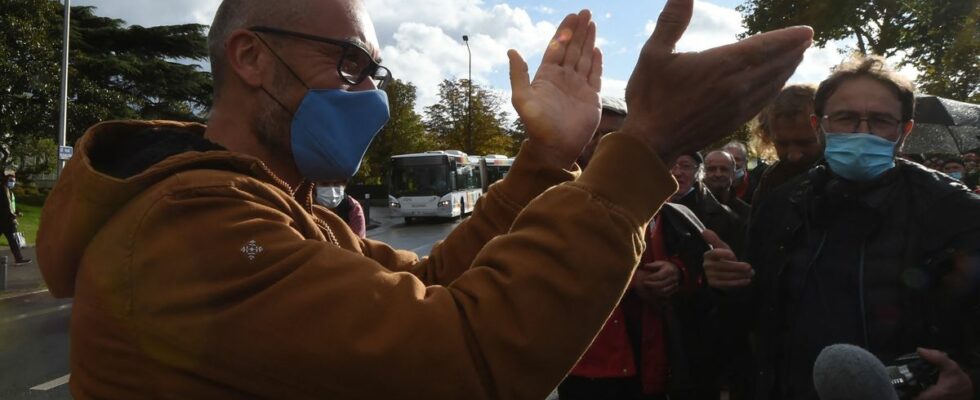Settled in Morbihan for more than ten years, will Vincenzo Vecchi end up being extradited to Italy? This is precisely what the supporters of the Italian activist fear after the annulment on Tuesday, by the Court of Cassation, of the decision of the Angers Court of Appeal, which had refused to hand over to the Italian authorities this refugee activist in France after his conviction for anti-G8 violence in Genoa in 2001. The court of assastion referred the examination of the file to the Lyon court of appeal.
“It is a stage decision which is dramatic”, reacted Laurence Petit, one of the spokespersons for the support committee for Vincenzo Vecchi. Sentenced in 2012 by the courts of his country to twelve and a half years in prison, this Italian national was arrested in 2019 pursuant to a European arrest warrant.
In its judgment delivered on Tuesday, the highest court of the French judicial order quashed the decision of the Angers Court of Appeal dated November 4, 2020. The judges of Angers had justified their refusal to execute this mandate arrest in Italy on the grounds that the main sentence to which the anti-capitalist activist was sentenced, ten years in prison for “devastation and pillage”, had no equivalent in France.
The decisive light of the European Court of Justice
This offense has focused criticism from its supporters, parliamentarians, writers, filmmakers and other citizens from the start, who have multiplied forums and actions in recent months to alert to the “political” dimension of the Vecchi affair. Introduced into the Italian penal code under Mussolini, the offense of “devastation and pillage” makes it possible to punish from eight to fifteen years of imprisonment for “complicity” the participation in a major disturbance to public order by a simple “moral competition” .
The Angers Court of Appeal, which opposed, after that of Rennes, the surrender to Italy of Vincenzo Vecchi, recalled that Italian justice had condemned the activist for two acts of damage to a bank and a vehicle. In both cases, he was simply “near” the places, “a concept with vague outlines” which could not “on its own constitute a constituent element of complicity” and without equivalent in French criminal law, she had considered. .
Seized of an appeal by the general prosecutor’s office, the Court of Cassation had decided in January 2021 to stay the proceedings and requested legal clarification from the Court of Justice of the European Union (CJEU), in particular on the condition of “dual incrimination”. For a person arrested to be extradited, the acts of which he is accused must constitute an offense in the country issuing the arrest warrant and the one which must execute it. However, in its judgment delivered on July 14, the CJEU considered that “perfect correspondence” was not required, and that France could therefore not oppose the extradition to Italy of Vincenzo Vecchi. .
“Execution of a Fascist Law”
The Court of Cassation underlines that the Angers Court of Appeal could not refuse the surrender of Vincenzo Vecchi to Italy, “since” that five of the seven facts referred to under the qualification of devastation and pillage did indeed constitute “a criminal offense in France “. It also recalls that the CJEU’s interpretation “is binding on the courts of EU Member States”.
“The procedure will resume in Lyon. We will use all possible means of defense to prevent Mr. Vecchi from executing the arrest warrant (…) and handing him over to a post-fascist government in execution of a fascist law,” warned Me Paul Mathonnet, one of Vincenzo Vecchi’s lawyers
Vincenzo Vecchi was one of the “ten of Genoa”, activists condemned in Italy, often heavily, after the violent demonstrations against the G8 of 2001. Hardly repressed, they had resulted in the death of a young man, Carlo Giuliani, shot in the head by an Italian rifleman.

